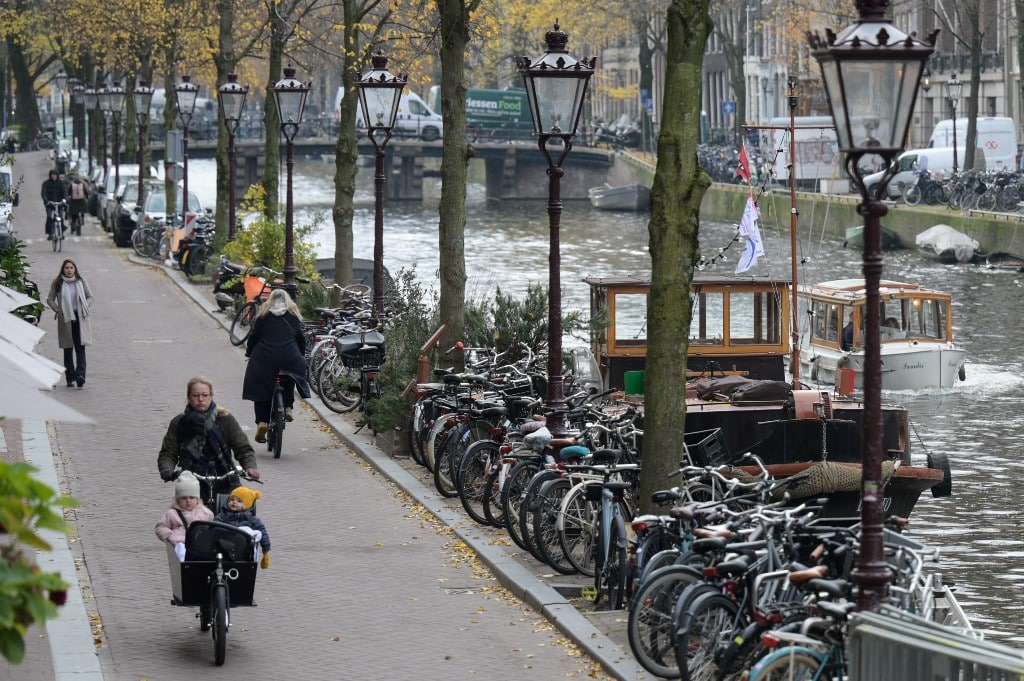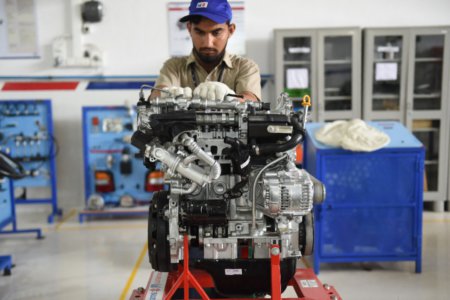
Modern technology forms the makeup of almost every aspect of life.
In just the technology hardware market alone, the global revenue in the devices market was forecasted to continuously increase between 2024 and 2028 by in total of US$101.3 billion.
Over in the US, the tech market accounts for 35% of the total world market, and the industry itself employed roughly 12.2 million workers in 2020.
It’s a sector that is experiencing rapid growth worldwide — making it an ideal industry to work in.
One way to get your foot in? Through BTech courses.
Shortened from Bachelor of Technology, these refer to four-year undergraduate engineering degree programmes. Generally, it offers a more in-depth study of the technical aspects of an engineering programme. A Bachelor of Science (BSc), on the other hand, tends to be more theory-oriented.
BTech courses are a popular option for Indian students in the science stream who have completed their Class 12 Board Exams.
The country itself graduates around 1 million BTech students a year, with this figure steadily increasing. They go on to take up in-demand jobs — in fact, in 2022, the technology sector in India employed over 450,000 employees.
While there are many Indian colleges that offer world-class BTech courses, there are just as many options for those looking for an international education. The best part? You can afford it — you just need to know where to look.
Here are some of the cheapest countries to pursue BTech courses for Indian students:
4 cheapest countries for Indian students to pursue BTech courses

BTech courses are a popular option for Indian students in the science stream who have completed their Class 12 Board Exams. Source: AFP
Germany
Germany is a popular destination for international students because of its focus on delivering a tuition-free education. Almost all study programmes are free in Germany, as long as they are conducted at public universities. In this, your only expense will be paying administration charges and accommodation fees.
The country is especially targeted by STEM students because of its emerging technology sector, which generates around one million jobs a year. In 2024, it was found that Indians made up the largest group of international students in Germany, with 49,483 Indian students currently studying at German universities, based on the latest winter semester 2023/24 data.
To study in Germany, all you need is to prove that you have a minimum of 11,904 euros (1,078,048.82 Indian rupees / US$12,877.57) in your bank account.
Being able to speak German will give you an edge as well, as most BTech courses are not fully taught in English.

The Netherlands is a strong contender as a study abroad destination for Indian students who are seeking to pursue BTech courses. Source: AFP
The Netherlands
The Netherlands is home to some of the oldest and best engineering colleges in Europe and in the world. These include the Amsterdam University of Applied Sciences, the Delft University of Technology and the University of Twente.
With such great offerings, it’s no surprise that many Indian students have made their way to the Netherlands. In total, 337,628 visa applications to the country were filed by Indian students between 2018 and 2023.
An application fee of 75 euros to 100 euros (US$81.17 to US$108.23) is required when applying to Dutch universities. The average first-year tuition for BTech courses in the Netherlands costs approximately 870,000 rupees (US$10,637.52). Here, living costs range between 800 euros to 1,200 euros (US$865.81 to US$1298.72).
For those looking for extra financial aid, the Dutch government offers India-specific scholarships such as Orange Tulip Scholarship.

Like anywhere in the world, some parts of Sweden will cost more to live in than others, so living in a smaller town could help reduce your financial worries. Source: AFP
Sweden
Known for its quality yet affordable education, Sweden continues to attract Indian students to its shores with over 1,000 English-taught programmes from undergraduate to PhD level. What’s more, the Swedish way of learning encourages students to think independently, creatively and critically through coursework.
Indian students as with other international students are required to pay an application fee of 900 Swedish Kronor (US$85.12). The average first-year tuition for Indian students pursuing BTech courses is 964,000 rupees (US$11,786.86).
Living costs in Sweden vary according to your chosen city, but similarly to the Netherlands, these can range between 700 euros to 1,200 euros (US$722.50 to US$1,238.57) each month.
Apart from that, Sweden offers generous scholarships for Indian students and also grants you the right to work while studying, further helping you alleviate tuition fees or living costs.

Cricket players can rest assured that they’ll have many chances to enjoy the sport while in New Zealand as the sport is the most popular and highest profile summer sport in the country. Source: AFP
New Zealand
Another popular study abroad destination for Indian students seeking good BTech courses is none other than New Zealand. According to the latest Immigration New Zealand data, 62,943 student visas were approved in the first nine months of 2024, with 11,610 of these granted to applicants from India.
Even better news for Indian students, Education New Zealand revealed in August 2024 a plan to grow the international education sector over the next three years.
This includes offering scholarships, such as the University of Auckland’s India High Achievers Scholarship worth up to 20,000 New Zealand dollars (US$11,997.49) and the Auckland University of Technology’s South Asia Scholarship, which awards successful undergraduate applicants 5,000 NZD (US$2,999.37) towards their first-year tuition fees, while postgraduate students receive 7,000 NZD (US$4,199.12).
The average first-year tuition in New Zealand costs approximately 4,100 euros to 6,100 euros (US$2,459.49 to US$3,659.24). Here, living costs range between 750 euros to 1,300 euros (US$449.91 to US$779.84).
Disclaimer: This article was last updated on October 25, 2025.










